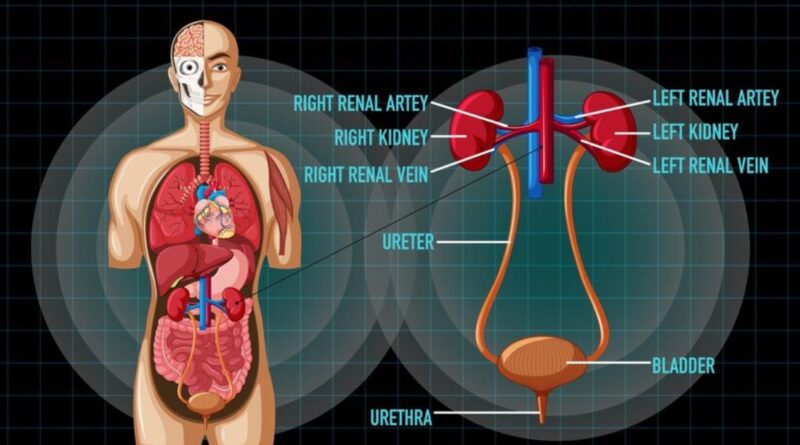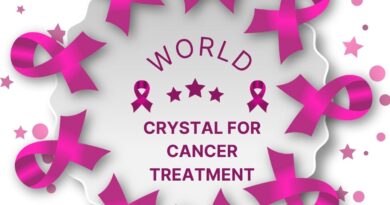What Is Kidney Stone Vs Uti
Introduction
Some of the symptoms are quite similar; however, there are a few differences that you might look out for. With UTI pain, usually it begins in your lower abdominal area, whereas with kidney stones, pain tends to begin in your back or side. UTIs usually present with a burning sensation while urinating, whereas kidney stones cause sharp stabbing pain.
How Can I Tell Whether This Is a Kidney Stone or UTI?

Although UTIs and kidney stones share some common symptoms, they are quite different in several aspects. The most common complaints of patients with UTI are painful urination (which is often of greater frequency) and the appearance of cloudy or smelly urine. Those who suffer from a kidney stone will experience back or side pain that might be felt to radiate, nausea, or blood in the urine. If you are feeling these symptoms, always go to your doctor for proper diagnosis and treatment.
Key Take-Aways:
- UTI: It hurts to urinate and makes you want to urinate constantly.
- Kidney stone: sharp pain in your lower back, along one side or your flank, or in your lower abdomen
- Visit a doctor to be properly diagnosed.
How Do You Know If You Have a Kidney Infection vs. UTI?

A kidney infection and a urinary tract infection both have some similar symptoms, but they affect different areas of your body. A UTI usually causes you pain when you urinate and a frequent urge to go. A kidney infection might include fever or chills, as well as pain in your back or side. If a UTI spreads to your kidneys, it may be very dangerous, so getting into medical treatment promptly is important.
Key Points:
- UTI: painful urination and urination frequency.
- Kidney infection: fever, chills, and pain in the lower back.
- If the symptoms are becoming worse, get medical help.
How Do You Know That Your Urine Is with Kidney Stones?
The color of urine which can be red or otherwise poisoned can be a result of the existence of kidney stones. The color may appear to be pink, red, or brown in color because the stones can sometimes cause tiny bleeds as they move around within the urinary tract. It might also appear a bit cloudy or smelly in some instances. If you experience such, it may be worth seeing a doctor and getting guidance on what to do.
Key Takeaways:
- Blood in urine may be pink, red, or brown.
- Urine may appear cloudy or smell ominously.
- Report to the doctor if you notice this.
Can a urinary tract infection go to the kidneys?
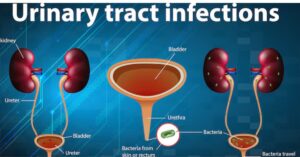
Yes, it may lead to a kidney infection if untreated. A UTI is born in the bladder; however, if the infection can spread, it can travel to the kidneys. The patient would definitely face much more undesirable symptoms that include fever, backache, and nausea. The presence of a UTI should be treated immediately through antibiotics to prevent it from becoming a kidney infection. Therefore, medical care needs to be obtained as soon as possible.
Key Points:
- Mild infections may expand to the kidneys if left without treatment because of UTIs.
- Some of the symptoms are fever and back pain.
- Treatment of kidney infection is prevented once it occurs in the early stages.
Symptoms and signs of kidney stones
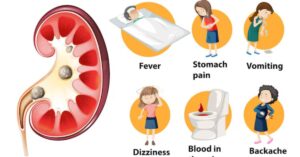
Kidney stones can cause you severe, sudden pains in your back, side, and lower abdomen. The pains may be in waves and are often very sharp. Other symptoms could include cloudy or foul-smelling urine, nausea, and a frequent necessity to urinate. It’s possible that your urine contains blood.
If you ever manifest with these signs, you should see a doctor for proper diagnosis and treatment.
Key Points:
- Severe pain in the back, side, or abdomen
- Hazy urine, nausea, and polyuria
- Blood may appear in the urine.
UTI signs and symptoms
UTI usually causes a severe urge to urinate, even when little is coming out. You may have a burning sensation when you pee, and your urine could be cloudy or smelly. Some people also experience lower abdomen pain. If not treated immediately, a UTI can deteriorate; thus, it calls for medical attention.
Key Points:
- Frequent, urgent feeling of needing to urinate.
- Pain when urinating.
- Cloudy or odorous urine.
What to Do About Pain in the Urinary Tract
Pain in the urinary tract is often caused by infection, irritation, or some other condition.
Sufficient amounts of fluids, such as water, can help flush bacteria out of the body. Some over-the-counter medication can be taken to help alleviate pain, but one should seek the treatment of a doctor if the pain persists or worsens. Early care would not let it get worse.
Key Take-A-Ways
- Drink enough water to flush bacteria.
- Painkillers can help soothe the ache.
- Seek a physician if your symptoms persist or worsen.
10 Telltale Signs You’re Suffering with a Kidney Stone
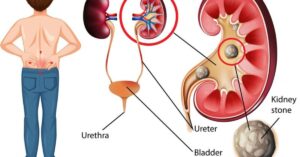
Kidney stones can cause acute, severe, sharp pains in your back, side, or lower abdomen which may move up and down. You may also have blood in your urine, which could be pink, red, or brown. Other signs include nausea and vomiting, a burning sensation as you urinate, and an urgent need to urinate often with very little output. You should contact medical professionals if you have any of these symptoms.
Key Take-Aways
- Sharp pains on one side or both sides of your back or your abdomen.
- Urine containing blood: it may be pink, red, or brown.
- Nausea, vomiting, and increased frequency of urination.
Of the conditions described, which is most likely to lead to the formation of kidney stones?
Kidney stones may occur when you have a concentration of calcium and other elements in your urine. People mainly get it due to dehydration; there is less urine, hence easy crystallization of these substances. Salty foods, foods that are rich in sugars, or proteins from animals may contribute as risk factors. Family history and some health conditions make some individuals prone to developing kidney stones.
Key Points:
- Dehydration contributes to the common causes of kidney stones.
- It may also be due to a higher intake of salt, sugar, or animal protein.
- Other reasons may include family history and medical conditions.
What Do You Watch Out For?
While you have kidney stones, being aware of some symptoms and indicators is required. Here are seven important ones that you should look out for:
1) Severe aching in your lower back or side that may come in waves;
2) Blood in urine that may seem pink, red, or brown.
3) The initiation of urination or frequent urination, sometimes with an urgent need to urinate is.
4) Nausea, and it may lead to vomiting;
5) Urine is cloudy or has a bad odor;
6) Pain when trying to urinate; and
7) Inability to pass urine. If you have any of these symptoms, go see a doctor immediately.
Key Points:
- Radiating back or side pain that may worsen for several hours or days;
- Blood in the urine. The urine will be pink, red, or brown in color
- Nausea with frequent urination and vomiting.

